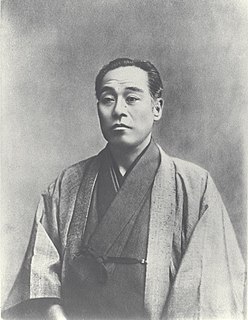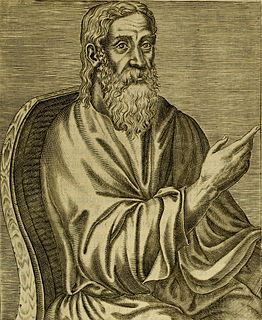A Quote by James Stenson
Being 'poor in spirit' (a Christian virtue) means being detached from things - being able to possess goods without being possessed by them. It meansputting people ahead of possessions - and seeing material things only as instruments for serving God and the needs of others.
Related Quotes
Do you want to improve the world? I don't think it can be done. The world is sacred. It can't be improved. If you tamper with it, you'll ruin it. If you treat it like an object, you'll lose it. There is a time for being ahead, a time for being behind; a time for being in motion, a time for being at rest; a time for being vigorous, a time for being exhausted; a time for being safe, a time for being in danger. The Master sees things as they are, without trying to control them. She lets them go their own way, and resides at the center of the circle.
Forgiveness means that I continually am willing to forgive the other person for not being God — for not fulfilling all my needs. I, too, must ask forgiveness for not being able to fulfill other people's needs. … The interesting thing is that when you can forgive people for not being God, then you can celebrate that they are a reflection of God.
The fact that only humans above a certain age can be morally virtuous, rather than babies or cats, means that that being moral requires some cognitive ability. If virtue is about desires, it is worth remembering that you can't desire some things without being able to conceive of them. Suppose a virtuous person will desire to make people happy and desire to tell the truth. You can't desire to make people happy without having the concept "happy" and you can't desire to be truthful if you don't have have the concept "lie", so a cat or a baby cannot desire these things.
In its broad sense, civilization means not only comfort in daily necessities but also the refining of knowledge and the cultivation of virtue so as to elevate human life to a higher plane... It refers to the attainment of both material well-being and the elevation of the human spirit, [but] since what produces man's well-being and refinement is knowledge and virtue, civilization ultimately means the progress of man's knowledge and virtue.
Some authors write nonsense in a clear style, and others sense in an obscure one; some can reason without being able to persuade, others can persuade without being able to reason; some dive so deep that they descend into darkness, and others soar so high that they give us no light; and some, in a vain attempt to be cutting and dry, give us only that which is cut and dried. We should labor, therefore, to treat with ease of things that are difficult; with familiarity, of things that are novel; and with perspicuity, of things that are profound.
We must not cast away riches which can benefit our neighbor. Possessions were made to be possessed; goods are called goods because they do good, and they have been provided by God for the good of men: they are at hand and serve as the material, the instruments for a good use in the hand of him who knows how to use them.
I was trained professionally to connect with people as a therapist. That's job number one, having a empathetic regard towards someone who is sitting right across from you. Being able to pull whatever their needs are, their desires and the things that are troubling them and being able to address that in some way.
When we assume God to be a guiding principle well, sure enough, a god is usually characteristic of a certain system of thought or morality. For instance, take the Christian God, the summum bonum: God is love, love being the highest moral principle; and God is spirit, the spirit being the supreme idea of meaning. All our Christian moral concepts derive from such assumptions, and the supreme essence of all of them is what we call God.
I think most people don't really understand all that it takes to stand on your toes, and to be able to jump and land without any noise, or for a male dancer to be able to lift a girl. All of these things look so effortless, but there's an attention to detail and years of training, as well as being able to transform into a character and being able to meld all of those things together.
Body', 'soul', and 'spirit' may designate phenomenal domains which can be detached as themes for definite investigations; within certain limits their ontological indefiniteness may not be important. When, however, we come to the question of man's Being, this is not something we can simply compute by adding together those kinds of Being which body, soul, and spirit respectively possess--kinds of being whose nature has not as yet been determined. And even if we should attempt such an ontological procedure, some idea of the Being of the whole must be presupposed.
I stand here on the summit of the mountain. I lift my head and I spread my arms. This, my body and spirit, this is the end of the quest. I wished to know the meaning of all things. I am the meaning. I wished to find a warrant for being. I need no warrant for being, and no word of sanction upon my being. I am the warrant and the sanction. Neither am I the means to any end others may wish to accomplish. I am not a tool for their use. I am not a servant of their needs. I am not a sacrifice on their alters.




































